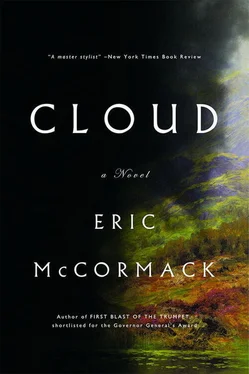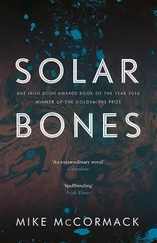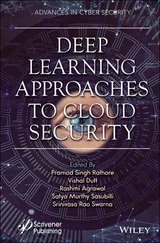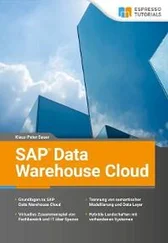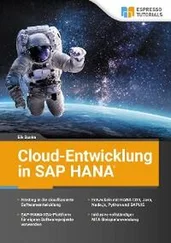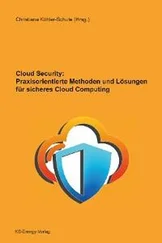All of this was astonishing to me. I couldn’t get over how, in a landscape that looked so empty — just rolling bare hills and sheep — there were so many other living things you’d barely notice.
“They tend not to make a big display of their presence,” said Miriam Galt. “That’s because most of them eat each other.”
I’d never heard it put that way before.
“Yes,” she said. “Nature up here’s very beautiful from one point of view. But once you get to know it, it can also be quite a nightmare. For example, the ground animals eat the nesting birds and their eggs. Those very same birds eat pups and kittens and fish and any other animal young they can find. That’s why the wisest creatures camouflage their babies and teach them to keep quiet when they’re not around to protect them. So existence isn’t necessarily so great for the animals. Then there’s the whole horrific life cycle of the insects. Thank goodness they’re so small we scarcely notice the carnage that goes on amongst them.”
I was taken aback at this unsentimental description of nature.
“From what you’ve told me about the Tollgate, you ought to understand it quite well,” she said.
MIRIAM GALT soon got me to tell her all about my life before Duncairn, but she seemed reluctant to talk much about herself. From what she did say, I knew that her background was quite unlike my own.
She’d been born in Leith, the seaport of Edinburgh, and her mother had died not long after giving birth to her. Her father had been a partner in a small merchant-shipping line. When she was sixteen, he’d sold his share in the company, left Leith for Duncairn, and moved into the house out on the moors. It was called Duncairn Manor.
When she told me this we were sitting in the high heather, looking down over the great sweep of moorland, and could see her house in the distance. The landscape here was quite a contrast to the romantic pictures I’d seen of Edinburgh, with its castle and the sparkling sea as its backdrop. I wondered why her father had decided to bring her to such a remote place.
“It was for his health,” she said. “Maybe he wanted to get as far from the sea as he could. This is midway between the two coasts, after all.”
I didn’t get much more out of her except that she herself enjoyed the relative isolation. Her main occupation was to look after her father, so she’d received the bulk of her education through correspondence courses. A part-time maid-and-cook did the housework.
I tried to pin down what exactly was wrong with her father.
“Maybe someday you’ll see for yourself” was all she would say.
ON ANOTHER GREY afternoon as we sat in the bowl of the rock, I mentioned that, according to the Baedeker, many of the big rocks found in the Uplands were deposited there during the Ice Age that scoured the world two million years ago.
“Well, that may be the geological explanation,” said Miriam. “But there’s a local legend that’s a bit more colourful. According to it, this rock we’re on was hurled at Duncairn thousands of years ago by a demon. Fortunately, he just missed his target.” She told me how the same legend claimed that the indentations in the side of our rock had been gouged out by the Romans, who used it as a lookout. What they were looking out for was apparently something more than ordinarily fearful.
My Baedeker, I remembered, had made a mysterious allusion to the old Roman road and the remnants of the great wall — that it was built to keep out something terrible.
Miriam knew about that, too.
“The Uplands are full of that kind of mixture of fact and fantasy,” she said. “I don’t suppose it’s like that in cities?”
I assured her that even in the Tollgate occasional weird things happened. For example, there was Cameron Ross, and the thing that cut him open from the inside. And then there was the apartment that was haunted after the violent deaths of the family who lived there.
She listened attentively to these accounts.
“How awful,” she said. She was curious about the super-
natural elements in the stories. She wondered if I actually believed in them.
I tried to explain that I found her question difficult to answer, though I’d often thought about it. Perhaps rather than belief, my attitude towards such things was a kind of wishful thinking. If you come from a grim, cruel place like the Tollgate, at times it’s hard to convince yourself that there can be any real point to human existence. But I suppose most of us want our lives to mean something — in spite of what reason tells us. So, even though they’re not pleasant, the cases of Cameron Ross and the haunted tenement, and eerie things in general, seem like welcome proof that at least there’s more to the world than meets the eye.
She kept nodding as I babbled on, as though she agreed with what I said.
“Maybe that’s what fascinates me about a lot of the curious things that happen in the Uplands, too,” she said. “They may not be supernatural, but they’re weird enough to make you wonder. For instance, you must know about the goings-on at Carrick?”
I assured her I’d never even heard of Carrick and encouraged her to tell me more.
“Well, in the case of Carrick, no one’s managed to come up with a scientific explanation of what happened,” she said.
CARRICK WAS JUST another little town, thirty-nine hilly miles north of Duncairn. No one lived there anymore, but the town and all the buildings in it were still perfectly intact. Sightseeing was completely forbidden, and few were tempted to break the prohibition.
Ten years ago, the entire population of Carrick had been evacuated and the town itself quarantined. The cause of this was the so-called Carrick Plague, and the fear that, even today, it might still be in the air. The plague had manifested itself in a most unusual symptom: the need to talk. As the townspeople one after another were stricken, they wouldn’t stop talking. They’d talk and talk and talk themselves to exhaustion, many of them still trying to squeeze out a few more words as they died.
Investigators looking into the pathology of the plague were completely stumped. They recorded as much as they could of the sufferers’ endless monologues. They hoped that amongst the heaps of verbiage, certain patterns might emerge; certain words, certain names might recur. But as far as they could ascertain, there was nothing at all unusual — just the mundane, commonplace chatter of small mining-town life.
Some investigators refused to give up on that line of inquiry. They even conducted studies comparing what they called “Carrick Speech” with the everyday utterances of other parts of the country, especially cities. Even after all these years the inquiry was still underway, but nothing definitive, so far, had emerged.
Other investigators now suspected that the spreading of the plague was actually a case of mass murder — probably an act of revenge — rather than a natural phenomenon. Support was growing for this attempt at a rational explanation, though no evidence of method or motive had yet been found.
“YOU SEE WHAT I MEAN?” said Miriam when she’d finished. “What happened at Carrick isn’t supernatural, like your Cameron Ross story — it’s just weird and out of the ordinary. But when so many such instances occur in one region, you do start to wonder, don’t you?”
I agreed, of course, and asked her to tell me about more of these “out-of-the-ordinary” things, if that’s what she wanted to call them.
“You probably know about Stroven?” she said.
THE LITTLE TOWN OF Stroven was thirteen miles to the south of Duncairn over a few ranges of hills. It had for generations been the most prosperous of all the towns in the region. But now the access roads to it had been closed.
Читать дальше
